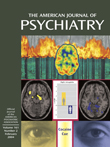Randomized Clinical Trial of Supervised Tapering and Cognitive Behavior Therapy to Facilitate Benzodiazepine Discontinuation in Older Adults With Chronic Insomnia
Abstract
OBJECTIVE: This study evaluated the effectiveness of a supervised benzodiazepine taper, singly and combined with cognitive behavior therapy, for benzodiazepine discontinuation in older adults with chronic insomnia. METHOD: Seventy-six older adult outpatients (38 women, 38 men; mean age of 62.5 years) with chronic insomnia and prolonged use (mean duration of 19.3 years) of benzodiazepine medication for sleep were randomly assigned for a 10-week intervention consisting of a supervised benzodiazepine withdrawal program (N=25), cognitive behavior therapy for insomnia (N=24), or supervised withdrawal plus cognitive behavior therapy (N=27). Follow-up assessments were conducted at 3 and 12 months. The main outcome measures were benzodiazepine use, sleep parameters, and anxiety and depressive symptoms. RESULTS: All three interventions produced significant reductions in both the quantity (90% reduction) and frequency (80% reduction) of benzodiazepine use, and 63% of the patients were drug-free within an average of 7 weeks. More patients who received medication taper plus cognitive behavior therapy (85%) were benzodiazepine-free after the initial intervention, compared to those who received medication taper alone (48%) and cognitive behavior therapy alone (54%). The patients in the two groups that received cognitive behavior therapy perceived greater subjective sleep improvements than those who received medication taper alone. Polysomnographic data showed an increase in the amount of time spent in stages 3 and 4 sleep and REM sleep and a decrease in total sleep time across all three conditions from baseline to posttreatment. Initial benzodiazepine reductions were well maintained up to the 12-month follow-up, and sleep improvements became more noticeable over this period. No significant withdrawal symptoms or adverse events were associated with benzodiazepine tapering. CONCLUSIONS: A structured, time-limited intervention is effective in assisting chronic users of benzodiazepine medication to discontinue or reduce their use of medication. The addition of cognitive behavior therapy alleviates insomnia, but sleep improvements may become noticeable only after several months of benzodiazepine abstinence.



